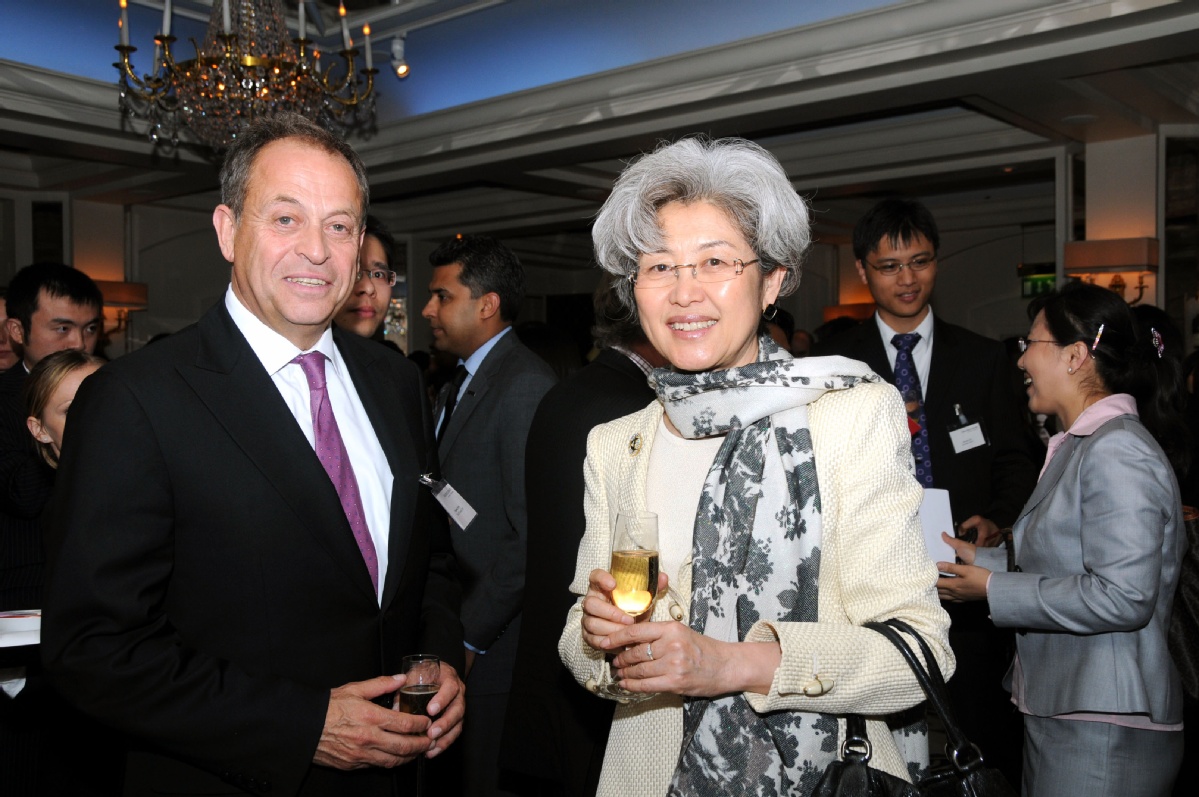
London, 1948
Education:
1955-67: University College School, London
1968-72: University College London, Bachelor of Law
Career:
1963: Starts working part-time at London Export Corp
1972: Formally joins London Export Corp
1975: Appointed group managing director at London Export Corp
1993: Becomes chairman of the 48 Group Club
Favorite book:
China at the Crossroads by Peter Nolan
'Icebreaker' who warmed Sino-British trading links

Held since 1957, the annual event is China's oldest and largest trade fair. During the '60s and '70s, when China was relatively closed off from the rest of the world, the fair was the country's window to foreign trade.
Since 1978, as the nation has opened up, the fair has flourished. This year, it has 60,475 booths across 118.5 hectares. To put the numbers into perspective, that's equivalent to the size of about 70 Walmart Supercenters.
More than 150,000 types of products are represented at the fair, including consumer goods, textiles, decorations, medicines, electronics and machinery.
Perry said today's scale would have been unimaginable back in the '70s, when the fair was dominated by a handful of State-owned trading corporations that had a limited range of items to sell and buy. For him and the other foreign traders, participating was also a physically exhausting process.
"I would start working at 6 am in Guangzhou, replying to our colleagues in London. Then we would have breakfast and get the first bus to the Canton Fair, which opened at 9:30 am," Perry said, adding that he would sometimes have to race across the halls of the Canton Fair in jogging shoes.
The fair opened with music and the cutting of the ribbon. By noon, Perry would have gathered orders from Chinese customers, ready to communicate back to London. The hard work was justified by abundant orders, and London Export Corp took a 2 percent commission on every deal.
In those days, Perry said, he and his colleagues in China would get only four or five hours of sleep a night. And the hot and humid summer months were especially memorable. "We were exhausted. There was no air conditioning, and there were a lot of mosquitoes."
Such conditions are perhaps unimaginable to the foreign traders who visit the Canton Fair today. They can access air-conditioned rooms and luxury facilities at the large Shangri-La Hotel next to the exhibition center.
Traders no longer need to race across the exhibition halls in jogging shoes, either, as digital communication has played a big part in making the trading process more efficient.


